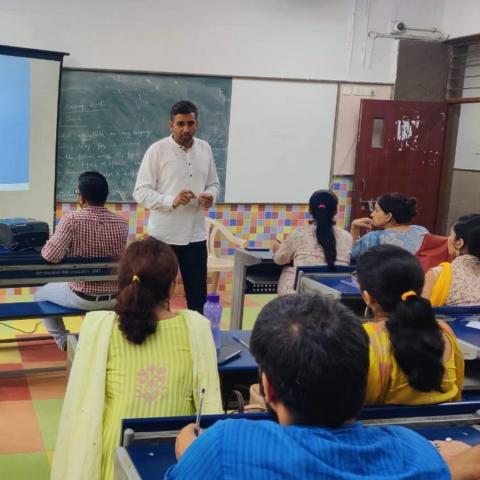
Mining the Mind: The Implications of Surveillance Capitalism in the Digital Age
As a professional in the field of education, I primarily read literature related to education. However, education as a discipline draws from several other fields, including sociology, history, political science, philosophy, psychology, neuroscience, and technology. The most recent book I've completed reading falls under the genre of technology, but I also view it as part of the sociology of technology.
Those who read my blogs or have attended my talks know that I've been quoting from this book frequently. I believe it's such a phenomenal work that I feel compelled to write a brief review, and this is my attempt. If Marx can be identified as the towering scholar who understood the Industrial Revolution and its larger implications, then, without exaggeration, I believe Shoshana's book holds similar value in understanding the "second modernity," the age we live in.
I think there has always been an intricate relationship between humans and technology. Technology has shaped socio-political and economic life, just as humans have driven technological advancements. Some technologies bring significant changes in the way we live and organize as a society. The invention of iron, explosives, the printing press, and electricity, among others, can be classified as inventions that significantly altered human life.
Currently, internet-enabled devices, coupled with the rise of social media powered by big capital, are creating a situation with the potential to significantly alter how we understand, live, and organize our lives. This shift has far-reaching socio-political, economic, and cultural implications, and we are already witnessing evidence of these changes.
Internet-enabled devices and social media have already become integral parts of our lives. To the extent that social recognition and validation, once dependent on traditional society and institutions, have shifted. Now, online presence is dominated by metrics like likes, reposts, and views, which have emerged as new tools of social recognition and validation.
Shoshana describes this as a new revolution where big companies are engaged in mining human emotions. The first phase of revolution was based on the mining of minerals; this current phase is based on the mining of human emotions. A significant difference between the two phases is that the capacity and scale to mine human emotions, in terms of capital and technology, are limited to only a few companies. What could result from this mining of human emotions? The book explores this, and it has also been depicted in the documentary "The Great Hack." Mining human emotions effectively shifts control over individual choices to corporations, which can determine the options available to a person in a sophisticated manner, often without their awareness. Shoshana captures this beautifully when she writes, "The goal is not to automate things for us but to automate us."
The book is extremely engaging. As you read, you realize how much is happening around us and to us, often without our awareness. We are part of a changing world that we don't fully recognize.
“…The TV that hears you, the house that knows you, the bed that welcomes your whispers, the book that reads you.…”
This quote illustrates that we are living in the age of surveillance capitalism. Shoshana explains the shift from market capitalism to surveillance capitalism in the following passage:
“Surveillance capitalism departs from the history of market capitalism in three startling ways. First, it insists on the privilege of unfettered freedom and knowledge. Second, it abandons long-standing organic reciprocities with people. Third, the specter of life in the hive betrays a collectivist societal vision sustained by radical indifference and its material expression in Big Other.”
Reading the book also brings feelings of anxiety and despair as one imagines how we are losing control over our own lives, with little effort being made to understand or address the situation. She writes:
“What life is left to us if taming fails? Without protection from surveillance capitalism and its instrumentarian power—their behavioral aims and societal goals—we are trapped in a condition of ‘no exit,’ where the only walls are made of glass. The natural human yearning for refuge must be extinguished and the ancient institution of sanctuary deleted. ‘No exit’ is the necessary condition for Big Other to flourish.”
However, there is a glimmer of hope when she writes, “The Berlin Wall fell for many reasons, but above all it was because the people of East Berlin said, ‘No more!’”
- Log in to post comments
